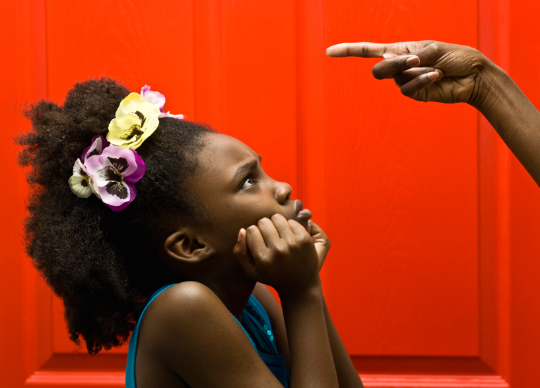To spank or not spank? That is the question…
The spanking debate has been a hot topic for some time now, and although in recent years the method of punishment has become increasingly unpopular in 30 countries worldwide, it remains that 2/3 of Americans support physical discipline.
Just last month, a national conversation on the topic was sparked once again when Adrian Peterson of the NFL was accused of child abuse. He took affirmative action, taking to Twitter to express his support for spanking as a form of discipline. In fact, he attributed his own success to such a form of discipline in his own upbringing. Many support Peterson and his ideas about spanking, but it’s worth noting that over 80 studies suggest that spanking can have serious negative affects on children. Moreover, research suggests it can weaken the bond between parent and child, and that even when effective, it is no more effective than other punitive methods.
In 2012 the journal, Pediatrics, published a study in which spanking was proven to be linked to mood disorders, anxiety disorders, substance abuse/dependence, and personality disorders. In response to this information, The Huffington Post gathered 8 experts to offer a variety of alternatives to physical punishment.
Here are the solutions they offered to those opposed to spanking their children, but who recognize the difficulty of reasoning with young children.
- Time Out: You’ve heard of this before. The key is to disengage for the specified time period. Let them be frustrated
- A Time Out for Yourself: Discipline is difficult, and the process can be frustrating. If you need a break, take it
- Logical Consequences: Whatever has caused the misbehavior, the punishment should directly link to. If they are throwing toys, take away those toys
- “No”: The word is powerful, but follow-through is what makes the impact. When you say “no”, mean it
- The Clap-Growl: Sometimes, a child simply cannot be reasoned with. To get their attention, try a loud clap and a stern expression
- Show Rather Than tell: Toddlers are simply not developmentally equipped to understand your lecture. Instead, use visuals and body language
- Focus on the Positive: Praise can reinforce positive behavior, making the desire to act out diminish on its own
- Outlast the Child: Once you give up, the child wins. this means they no longer recognize their misbehavior as having negative consequences. Hang in there!
Do you find these methods helpful? What are your thoughts on the spanking debate?







